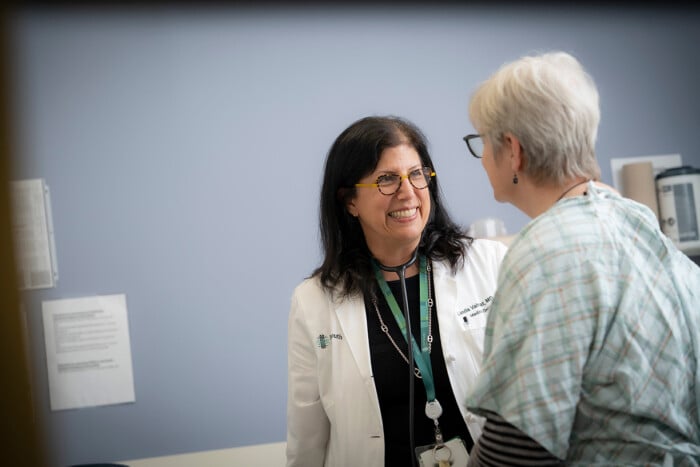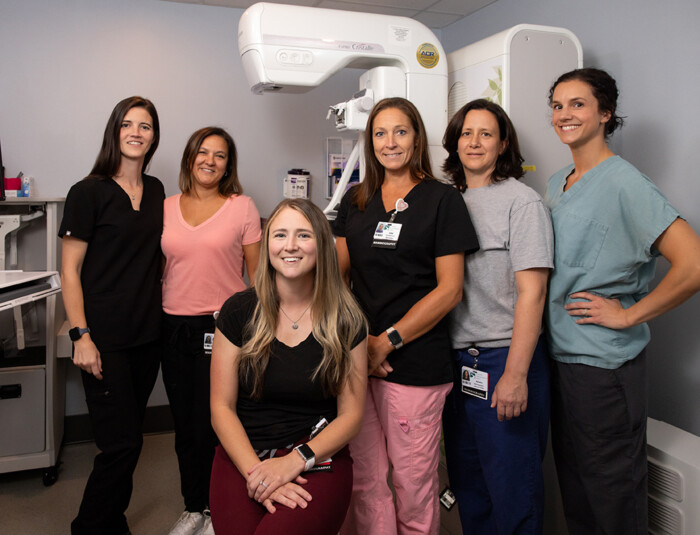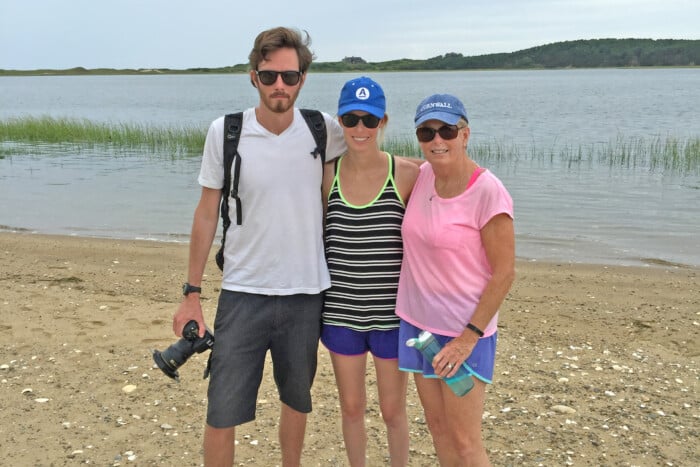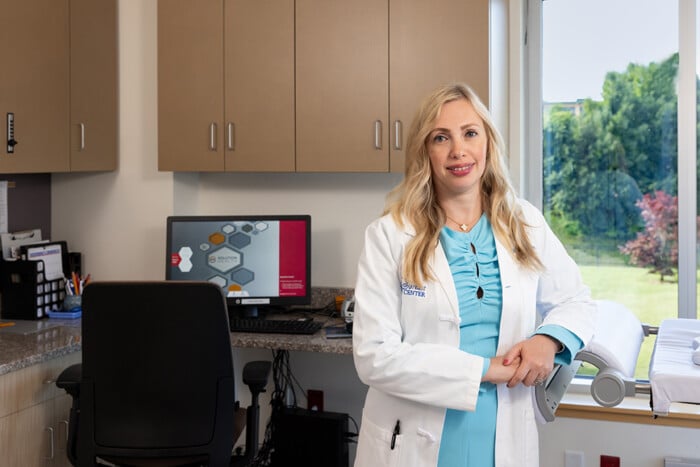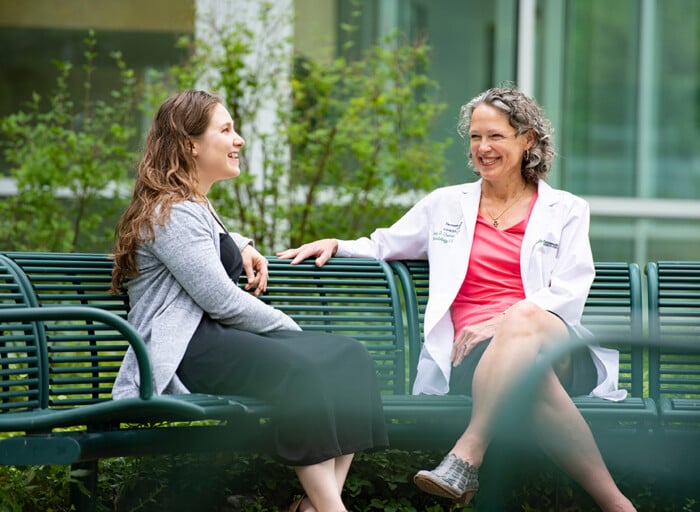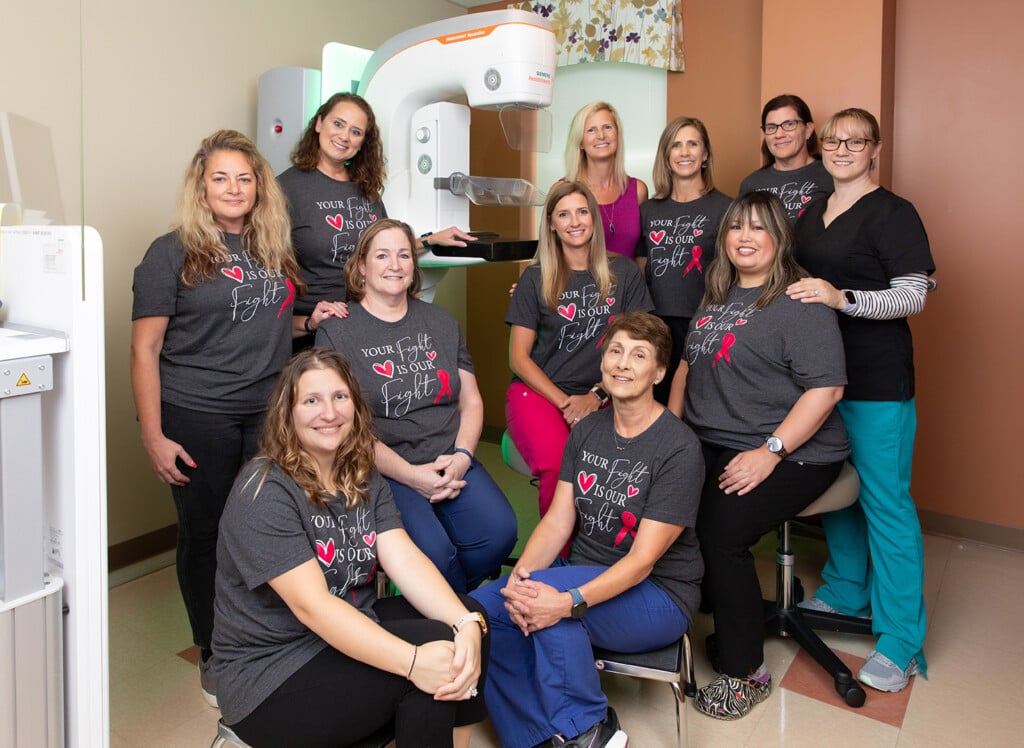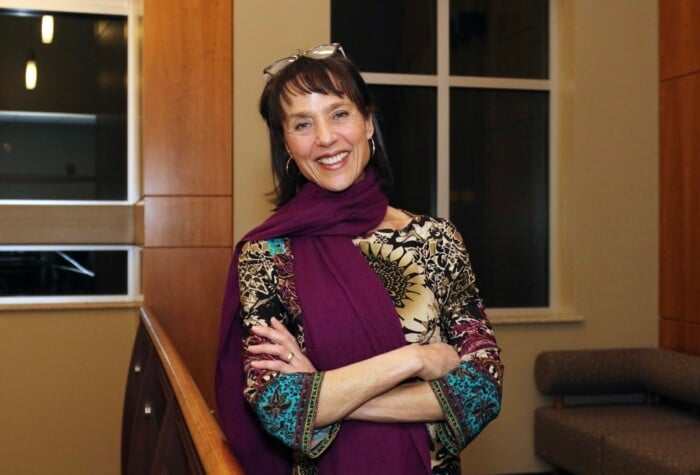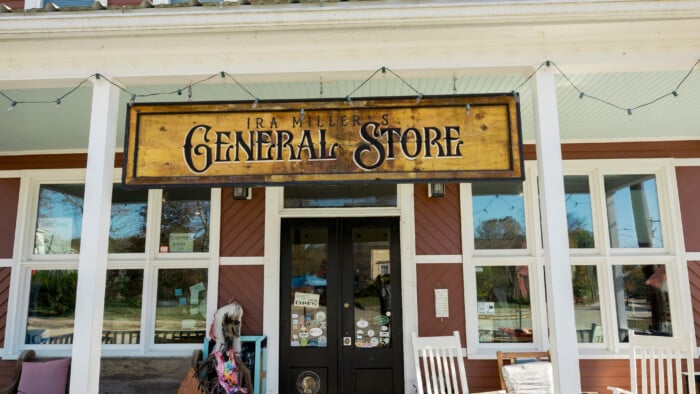Manchester Mom Credits Her Son With Detecting Her Breast Cancer Early
Robin Trafton describes her 3-year-old boy, Chase, as a typical kid who enjoys playing with his parents on their bed. A year ago, Chase actually helped save his mom’s life.
Just before she was scheduled to meet with Dartmouth Health Breast Surgeon Kimberly Ellis in October 2022, Trafton says she and Chase were playing on her bed.
“My son, a rambunctious 3-year-old, was wrestling on the bed with me and fell and crashed into my breast and I felt a lump,” Trafton recalls. “This was very apparent. It felt like a marble and was where it shouldn’t be.”
“I’ve been very proactive about keeping up with my screenings and my doctors,” she says. “I have had a history of breast cancer in my family with breast cancer. Both of my grandmothers had it.”
When she met with Ellis and told her about the lump, Ellis called for an ultrasound. Trafton says she had a previous ultrasound that detected a fibroadenoma, a benign breast tumor, and they were hopeful it would turn out to be the same thing.
A Dartmouth Health radiologist decided Trafton should have a biopsy in November following the ultrasound. The radiologist called with the results on the Tuesday before Thanksgiving.
“I wasn’t nervous or anything. I was just thinking it was probably another fibroadenoma,” Trafton says. “Then the radiologist told me it was cancer, and obviously that immediately shook me. I called my husband, my best friend, I was in tears.”
Right from the start, Dartmouth Health staff members stayed positive and offered her hope that because the tumor was detected early, she had a great chance to beat cancer. Subsequent tests provided some hopeful signs.
Trafton says genetic testing showed she did not have any issues with her BRCA genes. BRCA1 and BRCA2 are examples of genes that raise a person’s cancer risk if they become altered. Having a variant BRCA gene greatly increases a woman’s chance of developing breast cancer and ovarian cancer, according to the National Cancer Institute.
Trafton received more good news when her MRI showed the cancer had not spread into her lymph nodes. “Dr. Ellis was confident that with the surgery, we could remove it,” Trafton says.
Trafton recalls that Ellis never pressured her patient to choose a specific treatment, but explained the options that ranged from a lumpectomy, a mastectomy and chemotherapy or radiation once the tumor was removed.
Trafton says that Ellis was very proactive when it come to her diagnosis and very thorough. “She said, ‘It’s your body, and you have to live in it for the rest of your life and you have to make the decision that is right for you.’”
Trafton says she elected to go with a mastectomy with a latissimus dorsal flap. Her surgeon would take some muscle tissue and nerves from her back to reconstruct the area where her left breast would be removed. This would allow her doctor to replace the breast tissue and support the breast implant they put into the area, Trafton adds.
She also consulted with Dartmouth Health Plastic Surgeon Dr. Michael Tantillo. When Trafton suggested that both of her breast should be removed, she recalls Tantillo saying, “’Well, if you have cancer in one of your legs, you don’t chop off both of your legs.’”
“With his guidance, I did not do a double mastectomy because it was not needed,” Trafton says.
Trafton had her surgery at Elliot Hospital in Manchester on Jan. 11, 2023. A reduction was also performed on her right breast to make the size of both breasts proportional. Being able to have the surgery performed close to home enabled her to go home to recovery by lunchtime the following day.
“Dr. Ellis said that when I woke up from surgery, I woke up cancer free,” Trafton says. “The most painful part of the recovery was actually the surgery that was done on my back.” She also had to recover while lying on her back, which made it even more painful.
Trafton received more good news when she had her follow up appointment with an oncologist. She learned she did not need chemotherapy. Trafton says she was prescribed hormone blockers because she had a hormone receptive tumor removed. She will have to be on them for five to 10 years.
When she had her follow up appointment with Ellis, Trafton was told she was cancer free. “The staff at Dartmouth Health were wonderful,” she adds.
Within six weeks of her surgery, Trafton says she was up and around and resuming her routine, which includes her job at an Epsom company that specializes in offering continuing education courses for dentists and hygienists. She has worked there for 20 years.
“I just know that my experience with Dartmouth was incredible,” Trafton says. “I have full range of motion, and I feel good so I can keep up with my 3-year-old.”
Chase, who turned 4 this October, and Matthew, Trafton’s husband, are grateful that she is doing well.
“I feel fortunate. I do not feel like a survivor per se because I did not have as tough of a road as other people may have,” Trafton says. “I can honestly thank my 3-year-old for smashing into me.”
Trafton continues to be diligent about doing her mammogram screenings and follow up appointments. She also vows to do more self-exams. She knows that early detection made all the difference.
“If my story can help someone else, that would be amazing,” she says.

